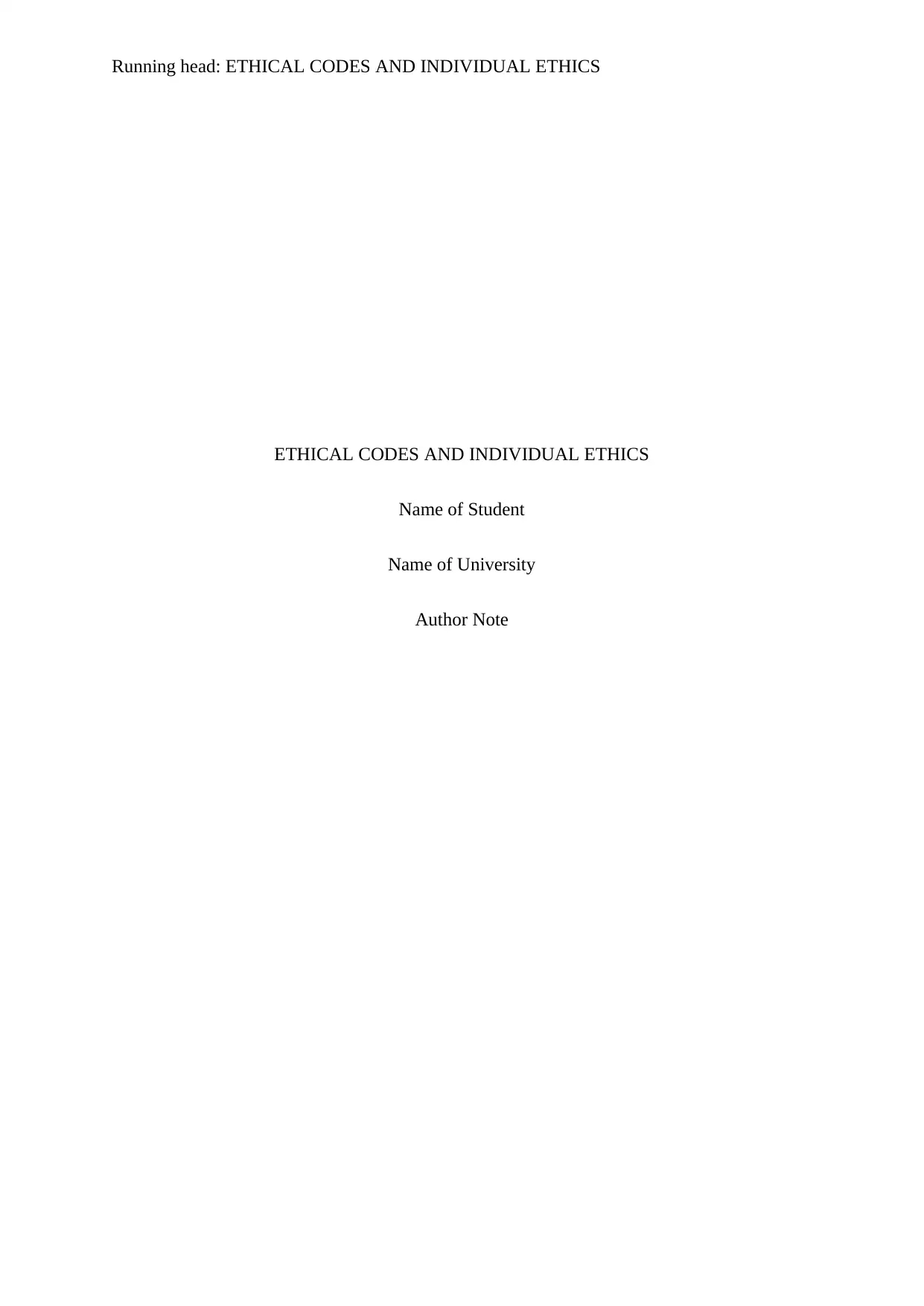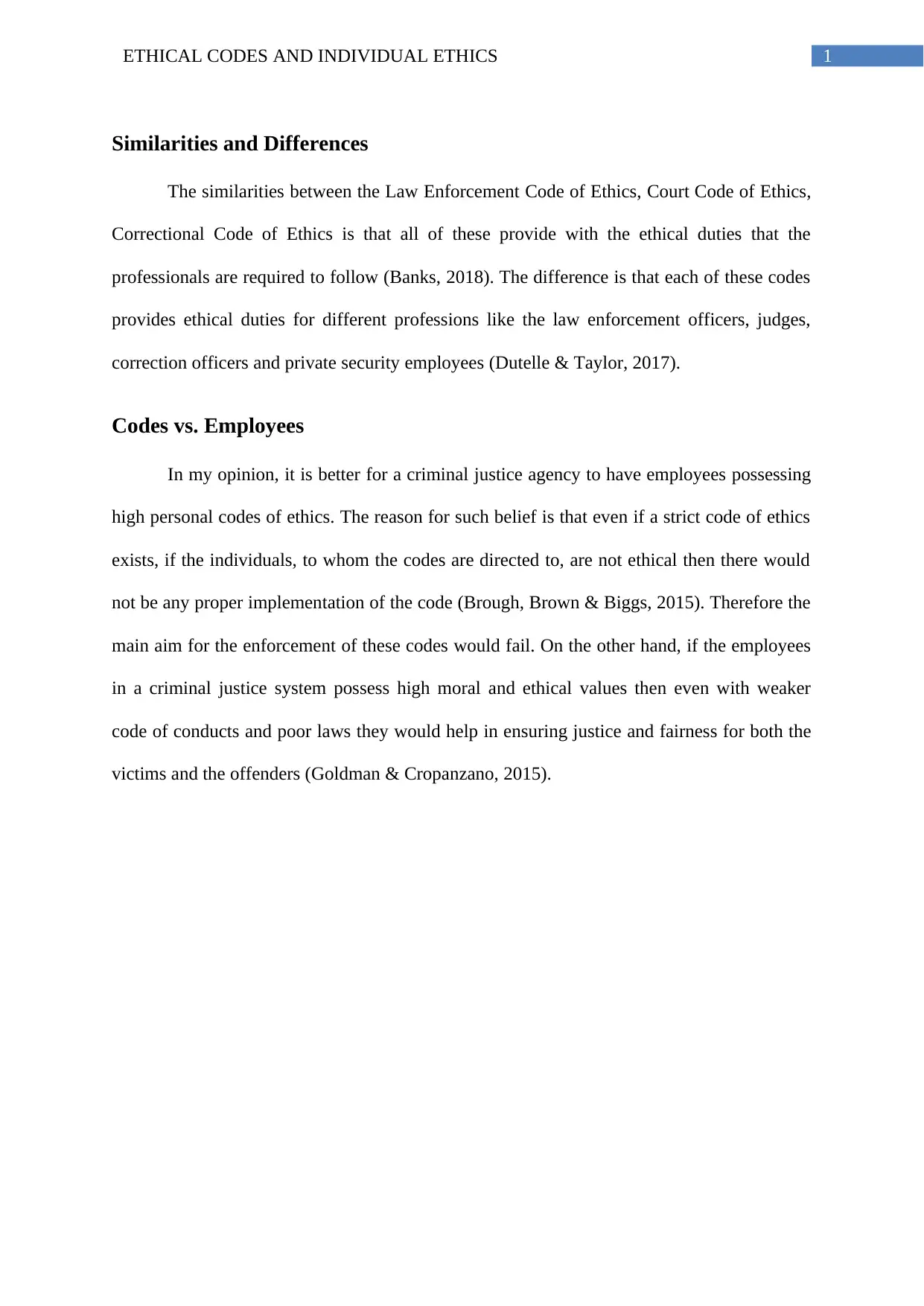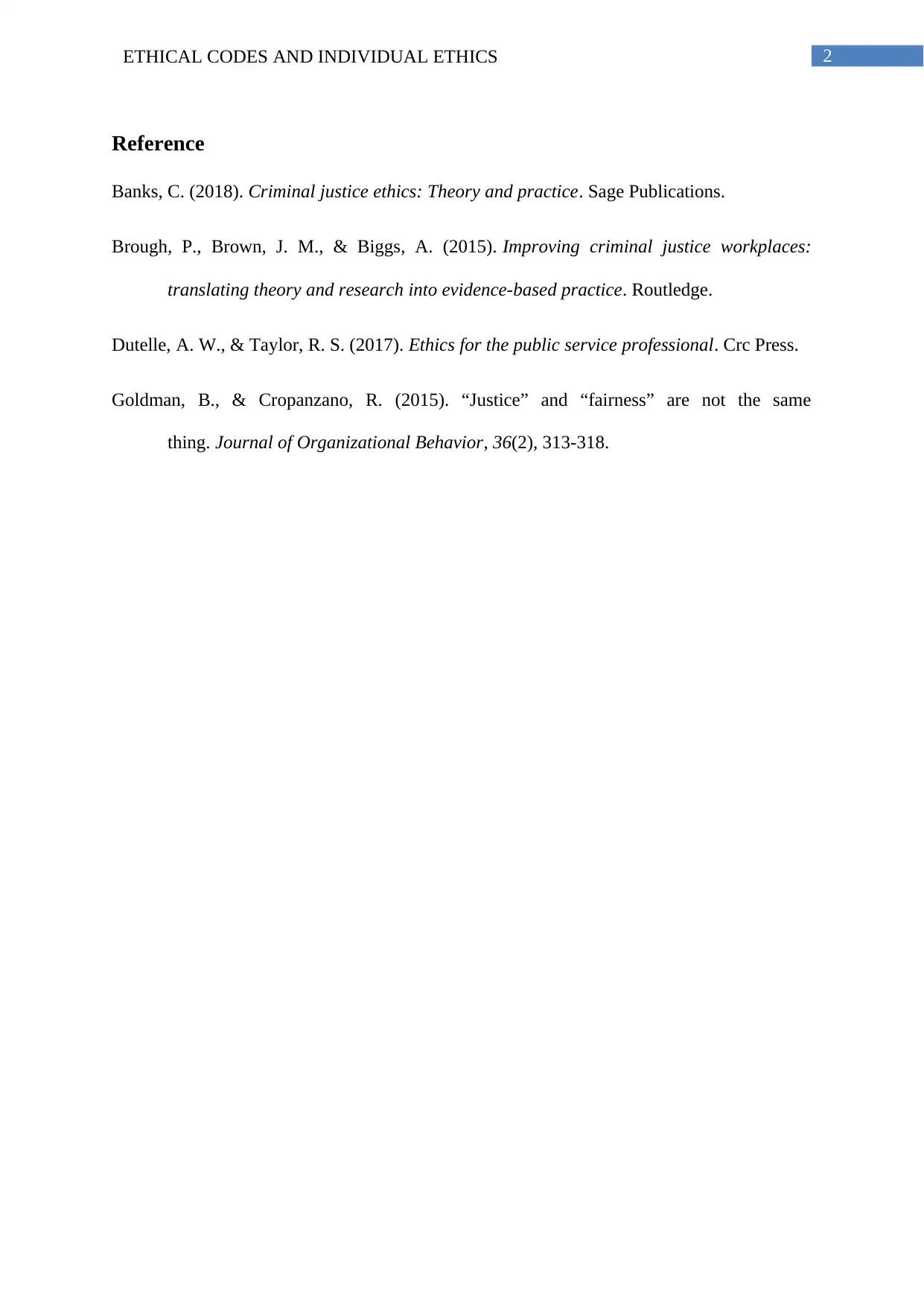University Report on Ethical Codes and Individual Ethics
VerifiedAdded on 2022/09/06
|3
|369
|17
Report
AI Summary
This report delves into the ethical codes and individual ethics within the criminal justice system. It examines the similarities and differences between the Law Enforcement Code of Ethics, Court Code of Ethics, and Correctional Code of Ethics, emphasizing the ethical duties expected of professionals in each field. The report argues that while ethical codes are important, the personal ethical values of employees are crucial for ensuring justice and fairness, even in the absence of strict codes. The report highlights the importance of individual ethics in upholding the integrity of the criminal justice system and references supporting literature.
1 out of 3




![[object Object]](/_next/static/media/star-bottom.7253800d.svg)